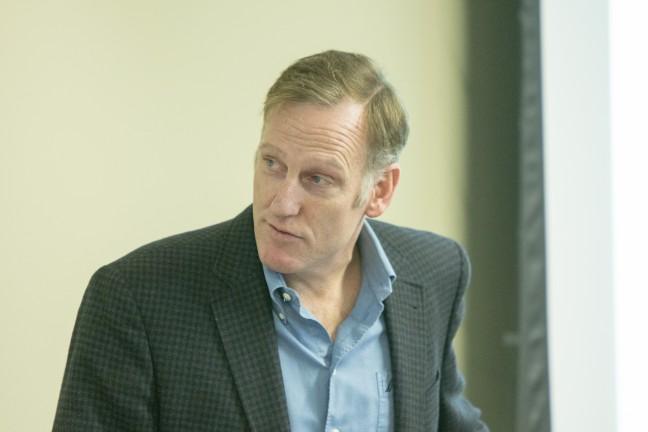With the recent implementation of the Federal Statistical Research Data Center, University of Wisconsin officials hope to attract the best researchers despite recent budget cuts.
The FSRDC is a secure facility on the UW campus that provides micro-data from the Census Bureau, FSRDC Executive Director Brent Hueth said. Both people data, records observing humans, and firm data, records observing businesses, are examined at the FSRDC. Hueth said researchers can use the data to track people over time, though they cannot identify individual people by name.
Faculty members across campus have recognized the impending need for a research facility, such as the FSRDC, and the benefits the data provides for further research and education, Hueth said.
“It’s critical,” Hueth said. “The future of social science research is going to increasingly depend on access to this kind of data and in order to attract the best researchers to campus, we have to have a center like this.”
Hueth said the resources available at the FSRDC allows faculty to be at the cutting edge of social science research. This also allows them to be more involved in policy discussions and use their experience in their classrooms, Hueth said.
UW public affairs and economics professor Timothy Smeeding, one of the faculty members who took the lead in fundraising to make the data center possible, said it is increasingly necessary for leading research universities like UW to have these data centers on campus. This data allows researchers to have better insights on how to provide brighter futures for people without infringing on the privacy of participants involved in the surveys, Smeeding said.
“It provides a safe place in this facility by which you can use large confidential data sets,” Smeeding said. “The data is only used for purposes of research and to improve the quality of what we know about behavior. And that is the future, so this is something we need to remain a world class research institution.”
In a blog post, UW Chancellor Rebecca Blank said out of 23 other FSRDCs across the U.S., this is the first to raise the money without funding from the National Science Foundation. The funding was raised by faculty across six different colleges: Agricultural and Life Sciences, Education, Human Ecology, Medicine and Public Health, Letters & Science and Business, Blank said.
Smeeding said the fact the university could raise necessary funds for the data center, despite a time of fiscal stringency, is a testimony to how important the FSRDC is to UW. With the data collected, researchers will be able to better understand the important effects family background, location and education have on economic mobility and opportunity, Smeeding said.
UW was the 20th research university in the nation to establish a data center, and this is a trend that will continue throughout other research universities, Smeeding said.
“It is being able to use the latest and best information we’ve got to provide evidence so we have a basis for policy,” Smeeding said. “Increasingly, really good faculty want to go to places where you can have access to facilities like the FSRDC so that they can do top end research.”














